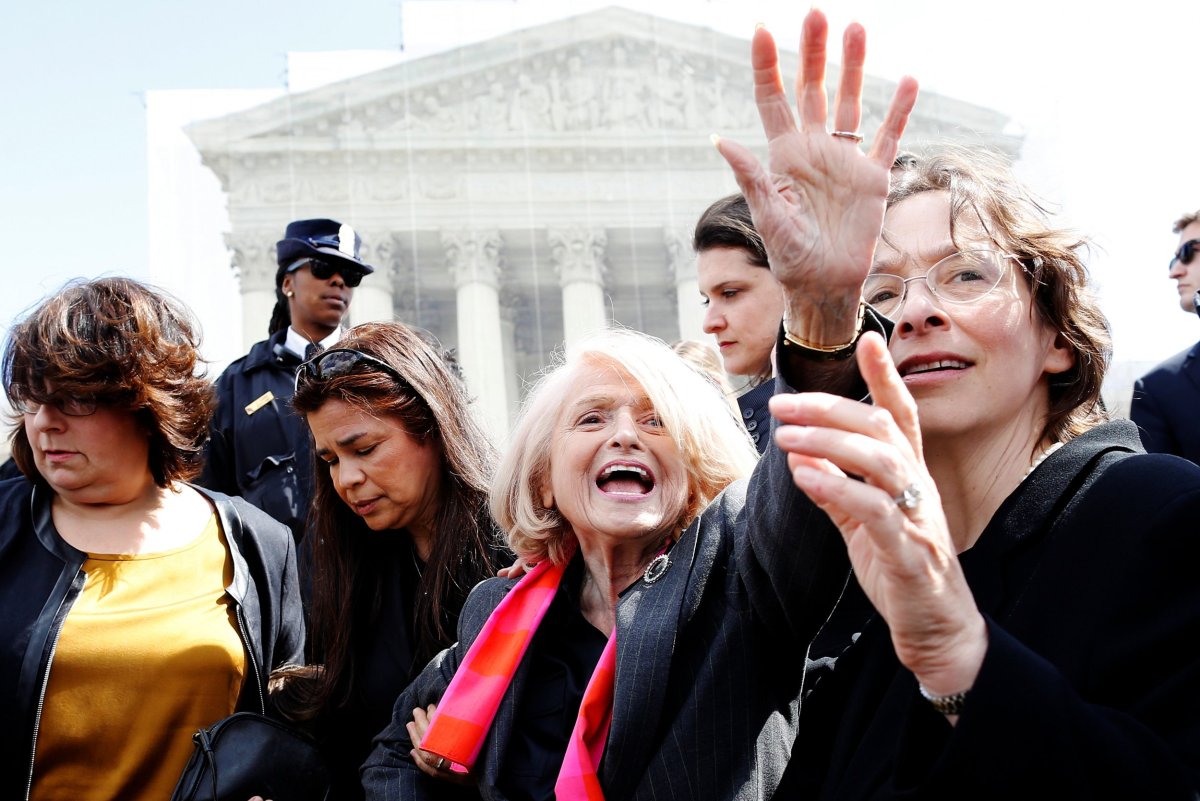Edith Windsor, the LGBT-rights activist who died at the age of 88 on Tuesday, will be long remembered for the culmination of her decades-long career as an activist: the lawsuit that led to legalization of same-sex marriage in the United States.
But, as many users on Twitter have pointed out and some obituaries have briefly mentioned, Windsor had a lengthy first career as a computer programmer.

A profile of Windsor from 2013 details how, not long after college and ending her short-lived first marriage to a man, she began a master's in applied mathematics at New York University and took on work doing mathematical data entry for UNIVAC at NYU. One of few women doing this work at the time, Windsor went on to become a programmer at Combustion Engineering. She worked the graveyard shift, coming in at midnight to help physicists interpret the data presented by new, behemoth computers.
Eventually, Windsor ended up at IBM.
"I was working on interactivity 25 years before the internet," Windsor told NYU Alumni Magazine. She worked at IBM for 16 years, rising to the rank of senior systems engineer, then the company's highest technical position.
But well before her marriage to Thea Spyer, whose death led to Windsor's lawsuit, Windsor faced challenges and anxieties at work both at NYU and IBM due to her sexual orientation.
Multiple articles recount Windsor's panic when, in order to continue her work assisting the government at the Atomic Energy Commission, she was brought forward to be interviewed by the FBI for a security clearance. Amid the Lavender Scare of the 1950s, in which the government fired many workers for being gay, lesbian, or bisexual, Windsor feared the same fate.
In the end, the FBI was more concerned with her sister's ties to the teachers union. (As Windsor told The New Yorker 's Ariel Levy, "internalized homophobia is a bitch.")
In interviews Windsor gave about her time at IBM, she described a deep love for her work and her coworkers, from whom she began to distance herself in order to hide her relationship with Spyer, the woman who would become her wife.
In order to explain Spyer's frequent phone calls to Windsor at IBM's office, she fabricated a relationship with Spyer's nonexistent 'brother' Willy, named after her childhood doll that she continued to keep in the closet as an adult.
When it came to her life at IBM, Windsor told Time magazine, "I lied all the time."
She later took an early retirement from IBM and focused her energies on her activist work.
But the challenges and indignities she faced throughout her first career all seem of a kind with the straw that broke the camel's back: When Spyer finally died after years with multiple sclerosis, Windsor sued the federal government so she would not have to pay $363,053 in taxes on her late wife's estate—a tax that would not have been leveled against a woman widowed by a man.
Windsor's valor does not lie in the fact that she pursued a career in the sciences, or that she made the choice to reify her relationship by going to Canada to get married. But while challenges for queer women persist in STEM (the term encompassing the fields of science, technology, engineering and mathematics), Windsor's actions helped make the previously unimaginable possible: that a woman might work in a technical field, married to someone she loves, and that both facts could exist as unremarkable footnotes in a lengthy life.
Uncommon Knowledge
Newsweek is committed to challenging conventional wisdom and finding connections in the search for common ground.
Newsweek is committed to challenging conventional wisdom and finding connections in the search for common ground.
About the writer
Joseph Frankel is a science and health writer at Newsweek. He has previously worked for The Atlantic and WNYC.
To read how Newsweek uses AI as a newsroom tool, Click here.








